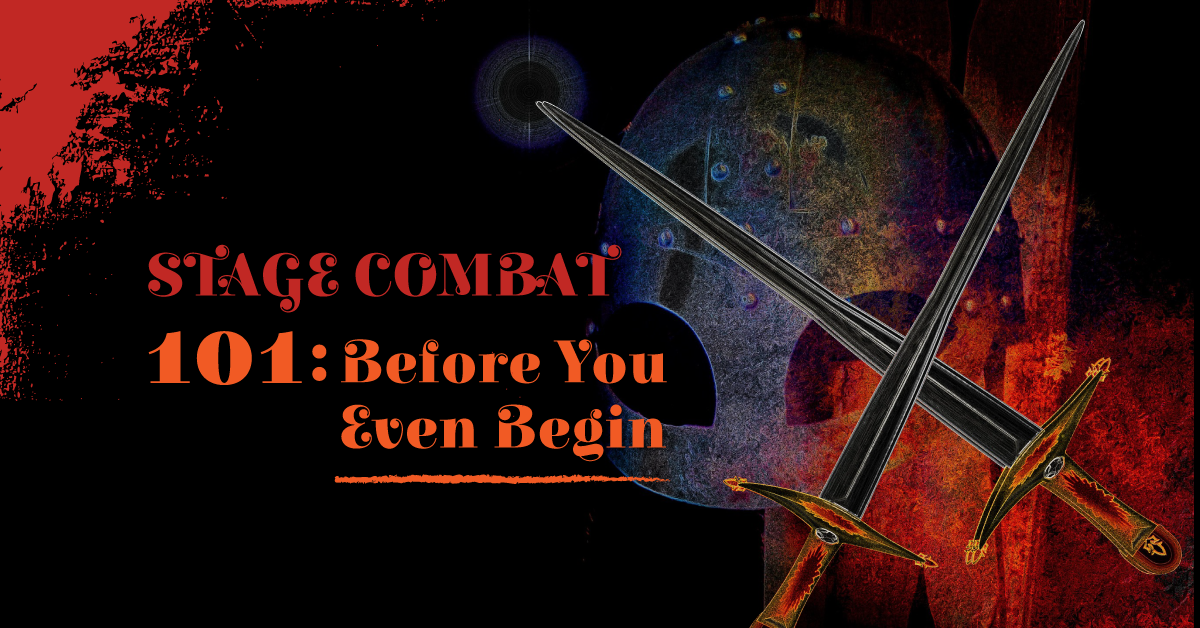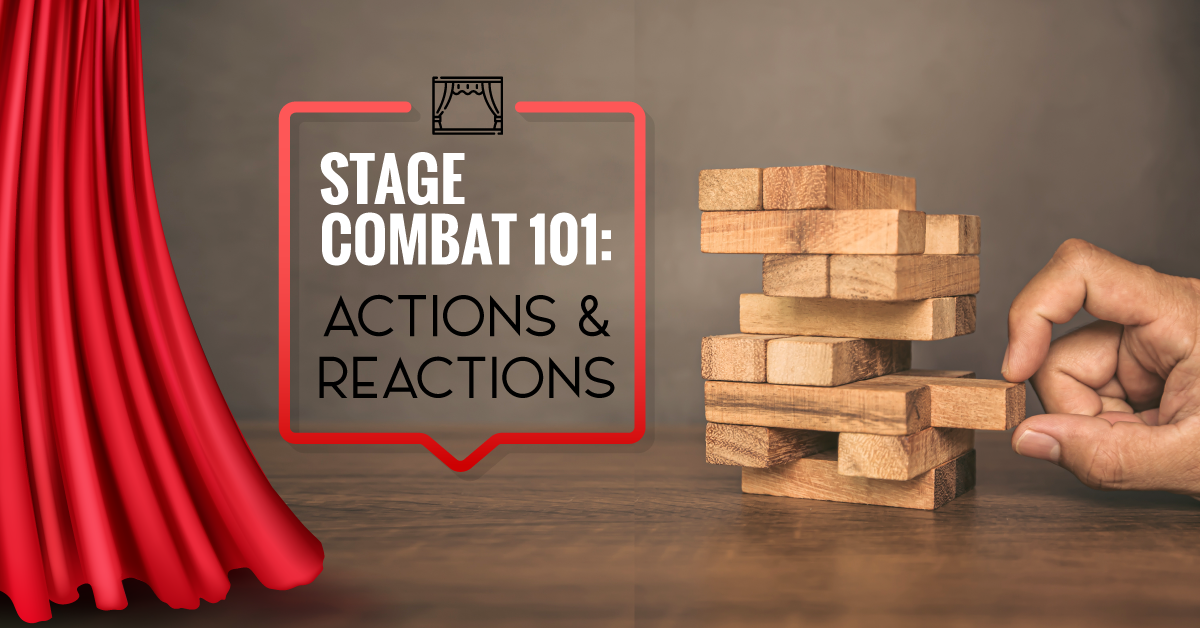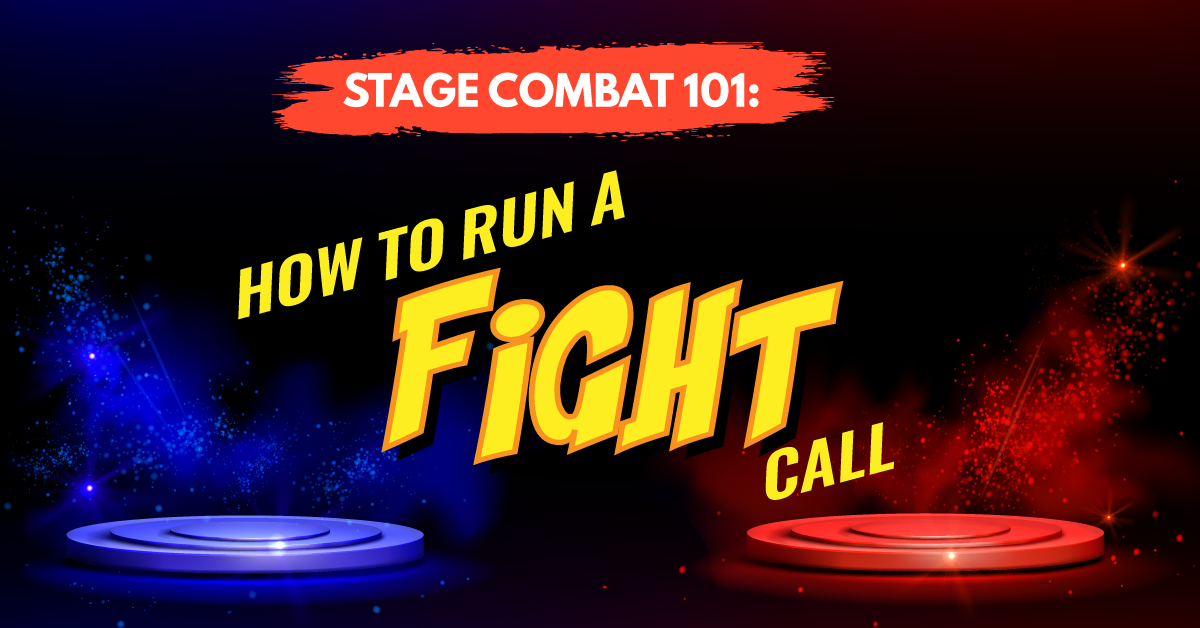Horror Movie 101: Failing Can Be Deadly by Steven Stack is a chilling mix of horror and humor - perfect for student performers and the spooky season! 👻
Stage Combat 101: Before You Even Begin
Stage combat is always one of the most eagerly anticipated lessons in drama class. Stage combat is fun to do and it’s a great workout. And when it’s done well it looks spectacular onstage. It can create incredibly visceral reactions from audience members, and really helps performers to bond because they must trust each other completely. Fights can be dramatic, funny, vicious, and ridiculous. Like songs in a musical, stage combat tells the story when words are not enough.
The flip side, though, is when stage combat goes bad – rather than staying involved and engaged in the story being told, audience members are more worried about the safety of the students onstage. Stage combat must be taught and performed in such a way that keeps students safe. There is always risk involved – not just to the students actually engaged in stage combat, but to the students around them as well. However, by taking the proper precautions and being smart, teachers can minimize the possibility of students hurting themselves or their fellow students while doing stage combat.
Before you even THINK about having your students throw a punch or pick up a sword, please take the following notes to heart.
Students should ONLY learn stage combat from a qualified and experienced fight director (FD) or fight choreographer. Let me say that again: Students should ONLY learn stage combat from a qualified and experienced fight director or fight choreographer.
Maybe you’ve taken a workshop, class, or professional development course on stage combat, or you’ve done stage combat in a show yourself. That’s awesome – but it doesn’t qualify you to teach students stage combat. Having taken karate or fencing doesn’t qualify you either – if anything, it’s actually worse because in sport fencing or martial arts, the goal is to actually hit your opponent, while the opposite is true in stage combat.
Find someone who is qualified and experienced in teaching stage combat to come in and instruct your students. Art of Combat and Fight Directors Canada are two great places to start. There is also the Society of American Fight Directors. Fight directors are great for teaching classes on stage combat and for staging violence for shows, and can also often advise about weapons (which ones are era-appropriate, how to acquire/rent them, and how to safely handle and care for weapons), historical accuracy, falls, lifts, and more. They’re also able to point out other parts of your show where combat or violence might occur that you may not have thought about!
Safety first, safety last, and safety always.
Stage combat is meant to look real – but it is still possible to get hurt. Accidents can happen, so teachers must take measures to ensure the safety of their students. Students should never be asked to do something that makes them feel unsafe. Empower your students to speak up if they feel unsure or unsafe about a move or direction – even if it’s their director, scene partner, or the FD asking them to do the move. Students need to be aware of their physical and emotional limits, and feel comfortable speaking up.
If students are ever feeling unsure or unsafe during stage combat, they must stop what they are doing immediately. Even if they are in the middle of a show! It is better to stop, regroup, and start again than to chance someone getting injured. A good FD will teach students methods of disengaging from the fight and how to get back on track.
Students must also understand the risks and responsibilities of being an actor-combatant. Stage combat requires a huge amount of trust between the scene partners. They have to take care of each other and know their choreography perfectly. Stage combat is not the time to improvise. Students must also display maturity when learning stage combat. There is always the urge to goof around and play-fight, or mess around with prop weapons (because they’re usually super-cool!). In stage combat though, there is no room for messing around, because that’s how people get hurt and props get damaged. Be clear with your students that there are consequences for messing around during stage combat (namely, being removed from the fight), and carefully consider the maturity level of your students when casting them into roles that may involve combat. Also, students must never do stage combat outside of the classroom – practicing fake punches on their siblings or demonstrating their choreography outside of the school can lead to injuries or even get them in trouble, particularly if another teacher, the principal, or a parent is around and doesn’t know that the students’ stage combat moves are for their class!
This is not meant to scare your students! Rather, it is an opportunity for them to step up and prove themselves mature and trustworthy, and learn an awesome new skill. With respect for themselves and their fellow classmates, students can (and will!) have an absolute blast learning stage combat.



